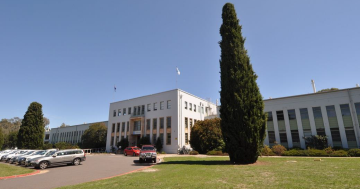
CSIRO CEO Doug Hilton has been accused of gutting the national science agency. Photo: WEHI.
CSIRO staff have called on Industry and Science Minister Ed Husic to stop widespread job cuts being rolled out across the organisation.
The CSIRO Staff Association wrote to Mr Husic on Monday (5 August), telling him that the national science agency was under attack from within.
“CSIRO’s core purpose and the ability of its staff to deliver world-class research are being undermined by significant restructuring and associated job losses,” the letter says.
The job losses stem from restructuring at CSIRO, which was designed to streamline operations and cut costs of Enterprise Support Services (ESS) by 25 per cent by 2025-26.
According to the CSIRO’s latest annual report, there were 1990 staff in ESS, indicating as many as 500 jobs could be on the chopping block.
Staff say about 700 jobs will be lost across the organisation, and that’s just the beginning.
“These cuts are widespread and reckless, jeopardising vital research and national capabilities in areas such as health, biosecurity, climate change and data sciences, including artificial intelligence,” the association says.
“Public sector science must be funded as a vital part of a successful Australia, especially in times of economic rebuilding and changing climate. We must protect the CSIRO so it can continue to be world-leading, trusted, robust and brave.
“We request your support and immediate intervention to save the CSIRO.”
The public sector union said that CSIRO CEO Doug Hilton had repeatedly refused to listen to staff concerns and that employee confidence in the strategic direction of CSIRO was collapsing.
The CPSU said the large-scale restructuring was cutting core scientific research, ending long-term projects and shrinking science support roles.
The cuts announced to date included more than 400 jobs from Enterprise Services, 43 from Health and Biosecurity (human health), 30 from Agriculture & Food, five from Manufacturing, and 120 from Data61.
It was also rumoured that 65 jobs in Environment could be lost.
The CPSU said the cuts to health and biosecurity (human health) were in their final stages and, as a result, CSIRO was set to exit clinical trial research, leading to the closure of the clinical trial unit based at Sydney’s Westmead Hospital and the complete removal of the organisation’s presence at the South Australian Health and Medical Research Institute (SAHMRI) in Adelaide.
Further research into the development of high amylose wheat, which improves digestive health and provides protection against bowel cancer and Type 2 diabetes, would end, as well as allergy research such as the OmnisOva program, which produces new generation allergen-free, egg white products for families.
A recent Staff Association snap poll revealed plummeting morale throughout the organisation and concerns over Australia’s ongoing research capability.
CSIRO Section Secretary Susan Tonks said the gutting of CSIRO flew in the face of the Federal Government’s Future Made in Australia policy.
“It isn’t clear to me or the hundreds of CSIRO staff who are losing or having already lost their jobs how these cuts will benefit our country in tackling the big issues that are ahead of us,” she said.
“The CSIRO is a national treasure – it’s home to world-leading science and innovation, and it needs to be protected, not gutted.”















